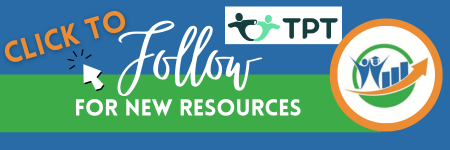6 Habits for Families with Early Readers
- April Connelley
- Jan 25, 2023
- 3 min read
Updated: Oct 30, 2025
By April Connelley

In many places it is time to gear up for parent teacher conferences. Everyone is also getting close to some kind of break, fall break, Thanksgiving break, winter break. It’s the season when teachers are asked questions like, “How can I help my child with reading?”. Teachers also hear comments like “I just don’t know how to support my kiddo with reading.”
So what are some easy ways families can help their early reader at home? Encourage families to start by developing habits that are easy, fun, and doable. Make sure parents understand that reading is rooted in language. Talking with your child is valuable and one of the best ways to give them a solid foundation for explicit reading instruction. Using the lens of language when thinking about these habits makes them more effective.
Let’s start with these 6 easy habits that any family can incorporate into their routines with early readers.
1 | Read to your child regularly. Make it easy to access books in different places throughout your house by stashing them in different rooms. Carry a book with you on outings. Look for sneaky ways to add reading into your normal routines, like when you are waiting in the car rider line, waiting rooms, or while older siblings are at practice. |
2 | Cook or bake with your child. Make things together. Ask your child to try to remember all the steps you took for the recipe. Discuss the steps you are taking, talk about the words used to describe your actions like stir or sift, ask your child to describe the ingredients, and practice following one and two step directions. |
3 | Visit the library. This is my personal favorite, because this habit lasts a lifetime, everyone in the family can find something, and it is FREE. Don’t limit your visits to just checking out books. Check out all the other offerings many libraries have, like story time, reading incentive programs, technology, and makers’ spaces. Many libraries also offer games, puzzles, and tools to check out as well. |
4 | Play with words. Sing silly songs, rhyme, stretch words, change sounds in words, or try to make up silly sentences together. All that word play supports the ability to hear sounds in words, a necessary skill to take on phonics. |
5 | Find reasons to write messages. Writing simple messages to your child or short messages together helps develop early literacy skills. Kids start to see that sounds are represented by letters. They also see that writing is a way to communicate with those around us. |
6 | During family activities and outings, promote opportunities for your child to ask and answer questions. Model curiosity and excitement when learning new things. Model asking questions about what you wonder about and answer their questions using complete sentences. Think about the words you use, try to build vocabulary by naming things with precision. For example, instead of answering, “That is a bird”, try, saying, “That’s a robin, a special kind of bird.” |
Partnering with families around literacy is a win-win situation. The early readers in our lives are surrounded at school and home with habits that build the foundation for lifelong reading and learning.
I’d love to hear from you. Share some of your favorite easy, fun, and doable habits that build early literacy!




